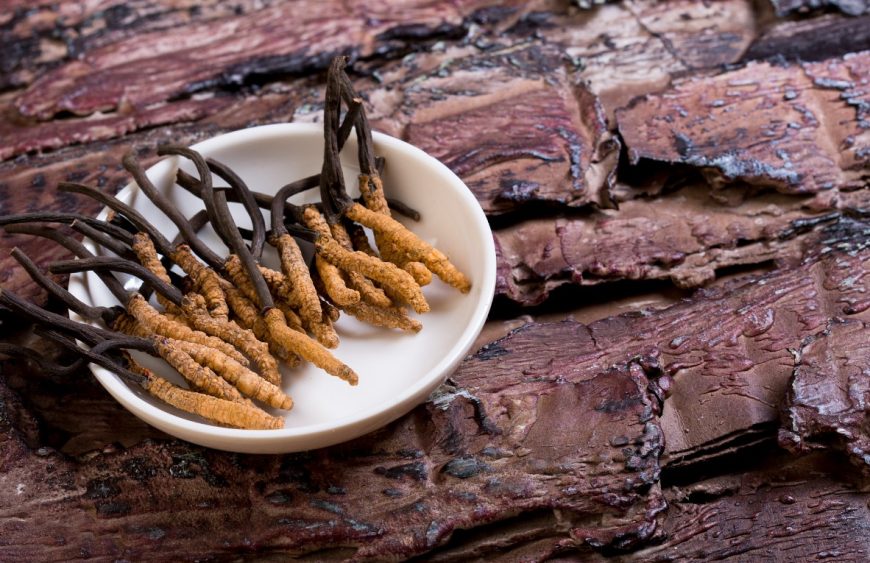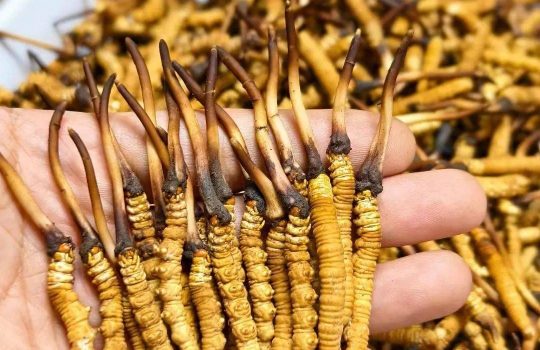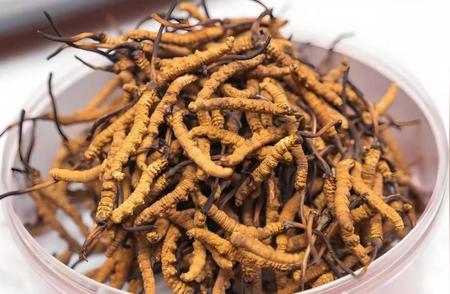Cordyceps sinensis is a precious traditional Chinese medicinal herb. In winter, its roots hibernate in the soil like insects, germinate in spring, and grow like grass in summer, hence the name “Cordyceps sinensis”.
The mechanism of action of Cordyceps sinensis in treating chronic kidney failure (CRF) can be summarized as follows:
(1) Supplementing essential amino acids (EAA)
Uremic patients can reduce their urea nitrogen levels by supplementing with EAA after limiting their protein diet. After testing, Cordyceps sinensis and its preparations contain more than ten types of amino acids, of which six belong to EAA. Cordyceps sinensis may promote protein synthesis, reduce nitrogen retention and achieve therapeutic effect by supplementing EAA that CRF patients lack.
(2) Regulating calcium and phosphorus metabolism
Effective control of hyperphosphatemia is one of the important measures to delay the deterioration of renal function. Cordyceps sinensis has the effects of raising blood calcium and lowering blood phosphorus, restoring normal calcium and phosphorus metabolism, which is consistent with the improvement of clinical symptoms, but its mechanism is still unclear.
(3) Supplement trace elements
The levels of trace elements such as zinc, chromium, and manganese in CRF patients are significantly lower than those in the general population. Both artificial cordyceps mycelium and natural cordyceps contain 15 trace elements, with high levels, especially zinc. Zinc is an activator of various metals and a major component of RNA and DNA polymerase. It participates in protein synthesis in the body and plays an important role in improving clinical symptoms of CRF. Therefore, the treatment of CRF with Cordyceps sinensis may be related to its supplementation of trace elements.
(4) Affects protein metabolism
Cordyceps sinensis has a significant effect on protein in patients with uremia. It has been confirmed that uremic toxins have an inhibitory effect on protein metabolism. Cordyceps sinensis can reduce the levels of molecular substances in the serum of patients with chronic kidney failure, leading to a significant decrease in serum creatinine and urea nitrogen. This suggests that the improvement in protein metabolism in patients may be related to the excretion of uremic toxins.
(5) Regulating immune function
The immunopharmacological effects of Cordyceps sinensis can be summarized as follows: ① Its effects on immune organs, mainly manifested as increasing the weight of immune organs (thymus, spleen); ② Enhance the function of the mononuclear macrophage system; ③ Enhance humoral immune function; ④ The regulatory effect on cellular immune function; ⑤ Enhance the activity of natural killer cells.







